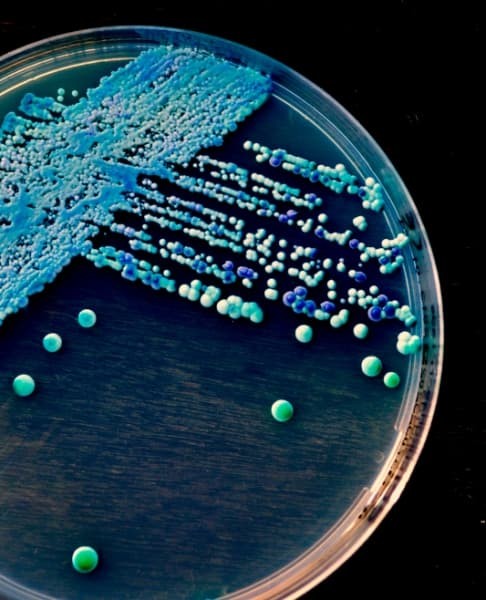
When a friend was fatigued and suffering from stomach aches, she took a trip to the naturopath, who diagnosed her with candidiasis. Since then, she's overhauled her diet and is loving her newfound energy and digestive health. If you're looking for a natural way to treat candida overgrowth, consider these natural therapies.
What is Candida?
Before we look at treatments, let's look at what candida is. Candida albicans is a natural yeast that naturally grows and lives in your body, and it's relatively harmless and controlled by healthy bacteria. However, if the bacteria are killed off and your immune system weakens, candida can take over and wreak havoc. This can cause skin infections, bloating and other digestive issues, tiredness, headaches, mood swings, poor memory, sugar cravings and other unwanted symptoms.
The yeast overgrowth may result in different types of candida infections, with vaginal candidiasis, oropharyngeal candidiasis, esophageal candidiasis and invasive candidiasis being the most common ones.
What are Natural Ways to Treat Candidiasis?
While an antifungal medicine is often prescribed by a medical practitioner in the treatment of candidiasis, it comes with a number of caveats particularly targeted at pregnant women, the elderly, children and immunocompromised patients. Prolonged use of antifungal medications may also result in numerous side effects, including digestive issues, severe rashes, headaches, dizziness, vomiting, adrenal gland problems and drug resistance. If you want to get rid of the candida fungus safely and for good, follow these natural remedies for yeast infections for sure-fire success!
See Your Naturopath
You may find it helpful to see a naturopath who can diagnose candida. They may suggest several natural treatments such as a nutritional plan, supplements and avoiding certain foods. You may find your candida symptoms improve after a few weeks.
Take Lactobacillus Acidophilus
The antimicrobial activity of this beneficial bacteria may control candida by raising the acidity in the gut. This stops the growth of candida and produces hydrogen peroxide, which can kill the nasties. Some studies have found that lactobacillus acidophilus can lower yeast infections and restore balance in the intestines. Yoghurt, cottage cheese, miso, sauerkraut and other fermented foods are excellent sources of L. acidophilus.
Make the Most of Essential Oils
Some essential oils – specifically enteric-coating capsules filled with peppermint, oregano and other oils – have been shown to help treat candida. You may need to take the capsules for a few months before seeing an improvement in your immune status.
Go for Garlic
Garlic is an effective natural remedy for parasite and fungal infections. It is especially used as a remedy for esophageal infections, stomach ailments and wound infection. Many health professionals recommend the use of garlic capsules in conjunction with essential oil capsules. Enteric-coating garlic capsules are designed to open when they enter the intestines.
Improve Your Diet
The best thing you can do to prevent yeast overgrowth is improve your diet. Begin by reducing your carbohydrate intake and cutting back on sugar. This is because sugar gives candida the fuel to grow. Your nutritionist or naturopath will most likely recommend a specific candida diet to help reduce symptoms. Cooking with olive oil or drizzling it over your vegetable salad will also help combat fungal infections, as the antifungal activity of the plant oil curbs yeast overgrowth.
Add a Dash of Herb
Hundreds of medicinal plants have been used since time immemorial in Traditional Chinese Medicine to treat a variety of fungal infections. A 2017 study titled Antifungal Compounds Against Candida Infections (Liu et al.) shows that gentiana macrophylla and anemarrhena asphodeloides are two powerful herbs that contain compounds with antifungal agents to inhibit the growth of candida albicans. In addition, the use of these herbs in combination with conventional drugs prevents drug resistance.
If you're suffering from recurrent yeast infections, a natural health professional who specialises in naturopathy, nutrition or herbal medicine can help you find the best treatment. Take the time to find one in your locality through the Natural Therapy Pages' comprehensive list of certified health practitioners.
Originally published on Dec 18, 2013








